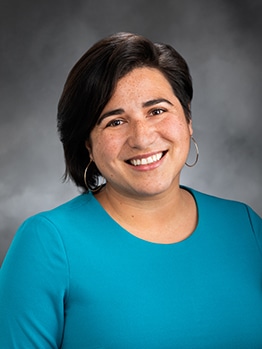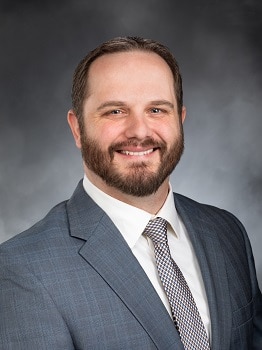Community Government
Election profile: Randall vs. Young for state Senate
Once again, the 26th Legislative District leads the state in campaign spending.
Community Sponsor
Community stories are made possible in part by Peninsula Light Co, a proud sponsor of Gig Harbor Now.
The two candidates for the district’s state Senate seat — incumbent Democrat Emily Randall of Bremerton and Republican challenger Jesse Young of Gig Harbor — are first and third statewide in fundraising among 2022 candidates for the Washington Legislature.
Randall has raised $915,274 in her quest for a second term in the Senate, according to the Public Disclosure Commission, which tracks political spending in Washington state. Young is giving up the House seat he’s held for nine years to seek promotion to the Senate. He has raised $699,049.
Randall was also the state’s top fundraiser in her first campaign in 2018. It’s a reflection of the swing-district status of the 26th, which includes Gig Harbor, the Key Peninsula, southern Kitsap County, Port Orchard and part of Bremerton.
“We’re not a blue or a red district. We’re a district where our neighbors think really carefully about who the person is who reflects their values,” Randall said. “So each party thinks they have a good chance. When the odds are good for both parties, that’s when we end up spending a lotta money.”
Young emphasizes crime issue and his personal story
Young did not respond to Gig Harbor Now’s request for an interview for this story, nor did he respond to questions emailed to him on Oct. 4. He also did not respond to our questions and requests for an interview ahead of the primary election.
But in a series of debates and forums, Young has emphasized his personal story of growing up homeless in Tacoma.
“I worked really hard, had a lot of providence in my life, and rose up out of poverty,” Young said at a debate in Bremerton on Oct. 15. “I worked tirelessly to make sure that my family would never know the homelessness that I grew upon with … when I chose to come into politics it was derived from the notion that maybe I could offer my skillset to not only do that for my family but also provide that skill and hard work so that you and your family will also never know that fear.”
In his public appearances, Young also has emphasized the issue of crime.
“This is an election about choosing between hope and fear,” Young said in the Bremerton debate. “You shouldn’t have to fear when your spouse goes to the store to pick up groceries. You shouldn’t have to fear that your child may not be safe on the way to the school bus stop in the morning.”
Randall links mental health crisis and public safety
Randall also discussed public safety extensively on the campaign trail and in an interview with Gig Harbor Now. Her framing of the issue emphasizes the need for better tools to address mental health.
“We still have a mental and behavioral health system that’s not meeting a lot of people’s needs,” Randall said in an interview on Oct. 12. “That’s very near the top of my list for the next legislative session.”

State Sen. Emily Randall, D-Bremerton
She also listed housing affordability and ensuring access to abortion services as issues important to voters. But she mentioned public safety, and its intersection with mental health, first when asked about her top priorities if re-elected.
“In multiple ride-alongs and conversations with law enforcement, I hear over and over that so much of what they’re doing is interacting with frequent fliers. Folks who are maybe not in a crisis (or a) position to be involuntarily committed but are in desperate need of help,” Randall said. “… Folks in crisis are both sometimes more likely to interact with law enforcement because they are committing a crime or acting out but also … be the victims of violent crimes. So how do we support community safety?”
She called for increased use of designated crisis responders, or mental health specialists who assist on public safety response to people experiencing behavioral health crises. She also cited the need for more inpatient crisis intervention facilities and touted the Poulsbo Fire CARES program, which pairs social workers with first responders trained in crisis intervention.
Background on the candidates
Randall grew up in southern Kitsap County and is a graduate of Wellesley College in Massachusetts. She has spoken movingly during the campaign about what inspired her to enter politics: Her family’s struggle to support her late sister Olivia, who was born with what Randall refers to as “complex disabilities.”
She serves in Senate leadership as whip of the majority Democratic caucus. She’s the chair of the Senate’s Higher Education, and Workforce Development Committee and serves on the Health & Long Term Care and Transportation committees.

State Rep. Jesse Young, R-Gig Harbor
Young is a Notre Dame graduate whose private career is as an information technology consultant. Pierce and Kitsap county council members appointed him to fill a vacant House seat in 2014. Voters subsequently elected him to the position four times.
He was restricted from having a House staff member in 2017 after former staff members complained about his treatment of them, The News Tribune newspaper of Tacoma reported. In the House, he serves on the Children, Youth and Families, Finance and Public Safety committees.
Questions and answers
Gig Harbor Now submitted questions to both candidates on Oct. 4 with the promise to publish their answers verbatim. Only Randall replied. We published her answers below.
Public safety
The 2021 Blake Decision effectively ruled the state’s felony drug possession laws unconstitutional. Subsequent legislation made drug possession a misdemeanor but required people to be offered treatment for their first two offenses. What changes in drug possession laws and enforcement would you support in the Legislature?
Randall: I believe that we should address substance abuse disorder like the public health emergency it is, which cannot be done through harsh criminal penalties alone. At the same time, we must protect our communities from the negative effects of drug-use and provide incentives for people to seek treatment. We should not make possession of personal amounts of drugs a felony, but ensure that we are working with local law enforcement, prosecutors, and substance use disorder treatment professionals to find the right balance to respond to our communities needs. We should prioritize solutions that are proactive rather than reactive, including expanding crisis triage and treatment beds, and get people help before they end up in the criminal legal system.
Transportation
What would be your top transportation priority in the 2023 and 2024 legislative sessions?
Randall: Our community will benefit greatly from the Move Ahead Washington transportation package that makes significant investments here in safety projects and congestion relief, and lowers tolls on the Tacoma Narrows Bridge – all without raising gas taxes.
In my next term in the Senate, I will prioritize working on fixes for Wollochet and 302, continue to work on the Gorst interchange, and advocate for our side of the Sound to stay connected.
Education
After the Legislature approved a 5.5 percent cost of living adjustment for teachers this year, are teachers and other school staff making the right amount of money? Should teachers and other school staff be paid more to attract and retain the best candidates?
Randall: I’m proud of our progress in fully funding K-12 education, including approving the 5.5% COLA for teachers. But funding our schools must be an ongoing commitment. Our kids deserve a high-quality education and that requires top-tier educators and school staff. We must continually monitor whether the pay and benefits we offer public school employees are competitive and that our schools are retaining and recruiting good staff. We need to address Peninsula School District’s regionalization factor, and ensure that special education and transportation services are funded sufficiently to meet the needs of students and families in our communities.
Climate
Do you support recent steps to reduce greenhouse gas emissions, such as the state’s “cap-and-invest” initiative and the 2030 target to phase out sales of new gasoline-powered cars?
Randall: The bulk of Washington’s carbon emissions come from our transportation system, and as we’ve experienced an October with temperatures nearing 90 degrees and smoke-filled skies, everyone must recognize that we need to do what we can to reduce greenhouse gas emissions.
Although I am not sure if the 2030 target for phasing out sales of new gasoline-powered cars makes sense for Washington, the reality is the global automotive industry is preparing on their own to phase out gas-powered cars by the early 2030s. My priorities for this transition are to ensure that our community has wide-spread infrastructure to charge these vehicles, that working families and folks reliant on their gas-powered vehicles aren’t left behind, and that there will not be restrictions on the purchase and sale of used gas-powered vehicles.
Economy
What can the state do to ease the impact of inflation?
Randall: Although much of the inflation we are experiencing is caused by global events, there are significant steps we can take here to make our community more affordable. In the State Senate, I’ve already begun to tackle affordability by lowering tolls on the Tacoma Narrows Bridge, getting money back to taxpayers with the Working Families Tax Credit, eliminating the B&O tax for 130,000 small businesses in our state, and reducing healthcare costs including capping the cost of insulin. There’s still more to do to address the cost of living in our community and state to ensure people and businesses here can afford to stay here. I’ll continue to work to lower the costs of the daily expenses that we depend on — housing, healthcare, and transportation, for example.

